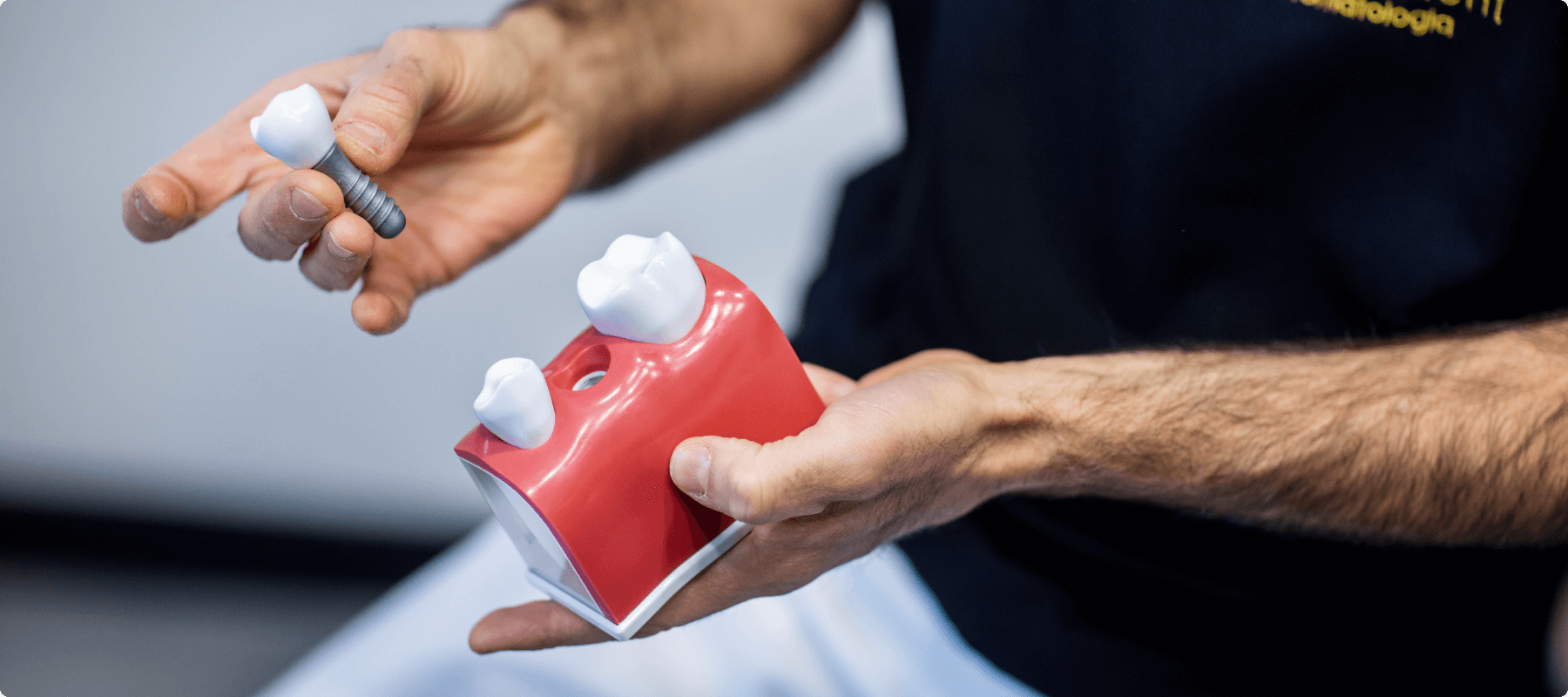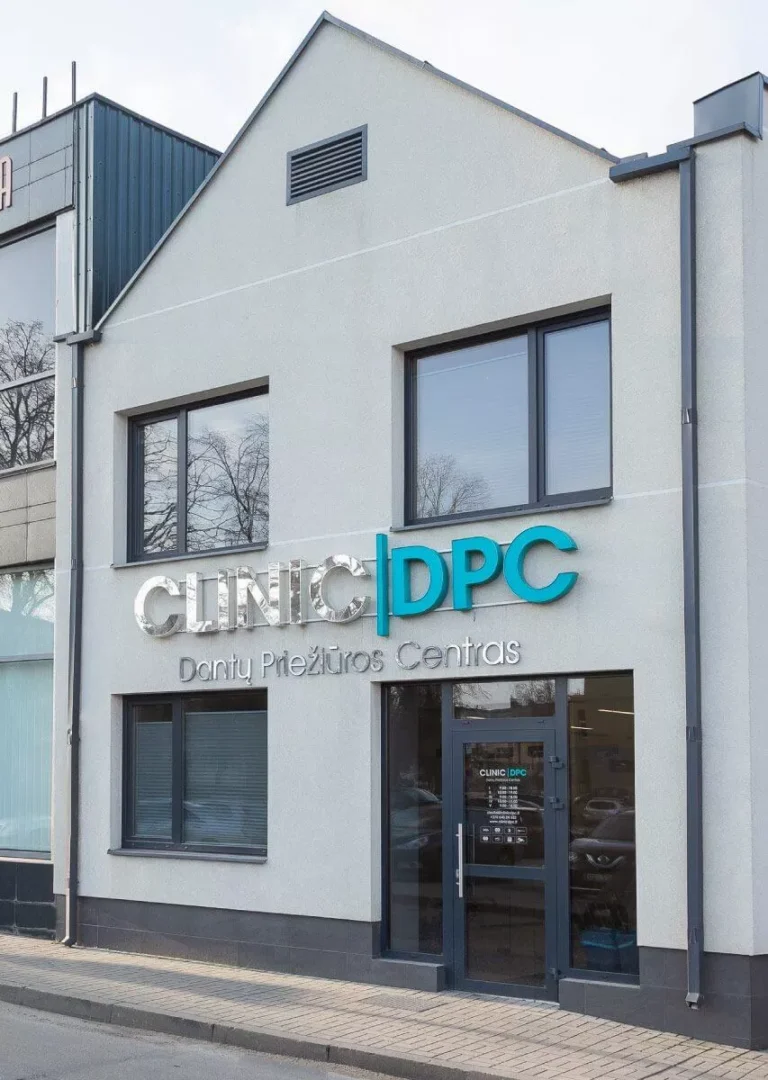Dental implants are considered the best method for replacing missing teeth. They are durable, aesthetic, and comfortable, making them the perfect replacement for natural teeth in the oral cavity. At our clinic, we provide implant treatments at the highest level!
A dental implant is a titanium screw-like structure designed to replace a tooth root. It is permanently implanted in the jawbone or the maxilla, and a crown, bridge, or denture is placed on it, depending on the number of missing teeth. Due to their structure, dental implants can function just like natural teeth. They enable biting and chewing of food by transferring forces to the jawbone and maxilla. They do not negatively affect speech. At the same time, they stimulate the bone tissue, preventing bone loss. The shape and color of the prosthetic restorations placed on implants can be customized to each patient to achieve an aesthetic smile. Additionally, they contribute to a youthful facial appearance by preventing cheek collapse. The numerous advantages make dental implants the best solution for replacing missing teeth!

Stages of Implant Treatment:
- Implant Consultation During this stage, our implantologist performs diagnostics, including X-rays, computer tomography, and an assessment of the bone condition. The most suitable implant system is selected for the patient.
A treatment plan and cost estimate are also prepared at this stage.
- Implant Placement The dental implant is surgically placed into the bone at the site of the missing tooth. After implantation, the incision in the gum is sutured, and the tissues are allowed to heal for a period of 3-6 months. This is when the process of osseointegration occurs, which involves the integration of the implant with the bone. Temporary prostheses can be used to improve smile aesthetics. In cases of bone loss, reconstructive procedures for bone restoration are performed beneath the implant.
- Prosthetic Restoration on Implants The implant is uncovered, and an abutment and dental prosthesis are placed on it. Depending on the size of the tooth gap, crowns, bridges, or dentures are used. These restorations are prepared by a prosthodontist to ensure they match the remaining teeth in the arch and achieve an attractive smile.
- Follow-up Visits After dental implant placement, regular check-up visits every 6 months are recommended to allow the dentist to monitor the treatment’s effectiveness.





